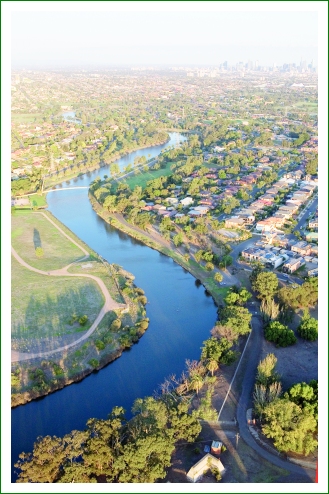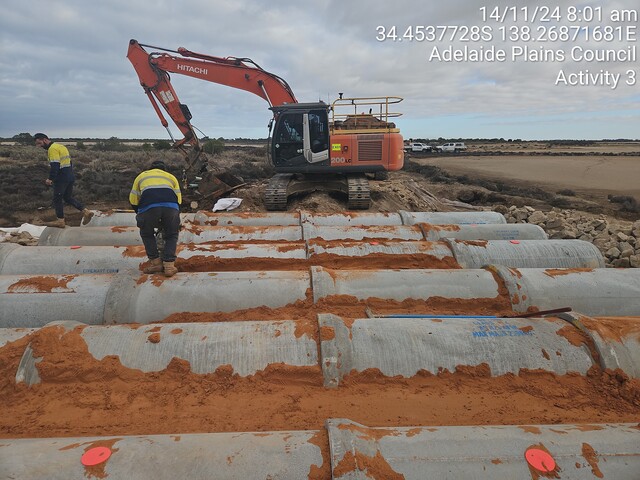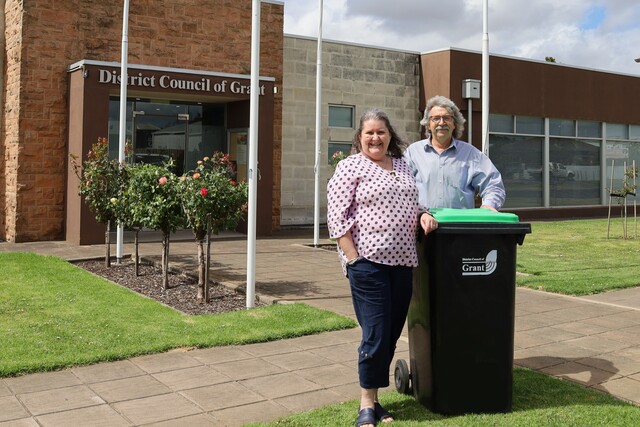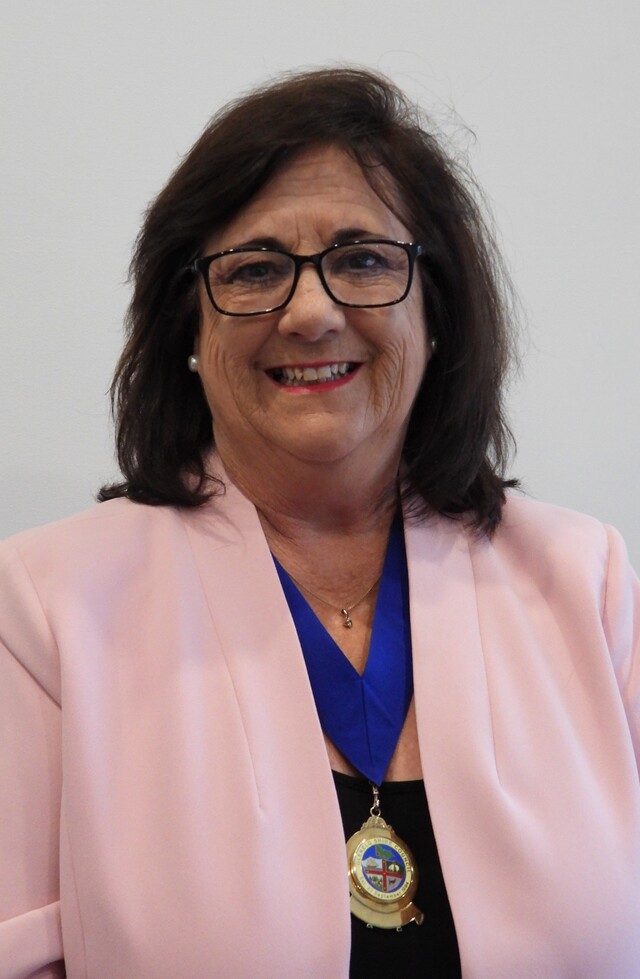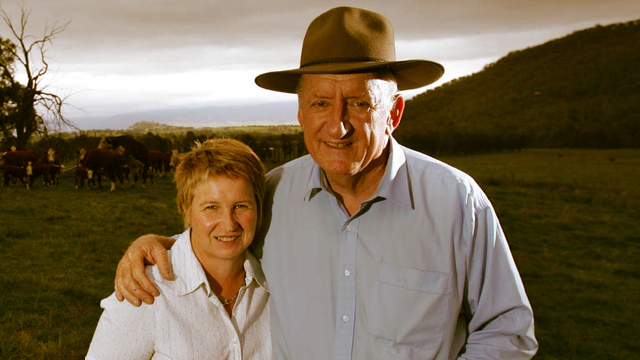Moonee Valley leads the way in sustainability
Council is placing an increasing emphasis on sustainable service delivery. The Environmental Sustainability Plan, which was drafted and endorsed this year, will guide Council as it seeks to embed sustainability principles into all of its decision making processes in the years to come.
The Environmental Sustainability Plan is an integrated document that builds on previous and existing strategies including the Greenhouse Action Plan, Integrated Transport, Street Planting, Waste Management Plan, Sustainable Water Use Plan, Stormwater Management Plan, park master plans and community wellbeing.
As part of the Environmental Sustainability Plan, Moonee Valley has prioritised carbon neutrality. Streetlighting, in particular, has been found to contribute to 58 per cent of Council’s greenhouse emissions.
In November, Council endorsed a plan to identify immediate energy conservation and efficiency options for its operations, including lighting changeovers, with a plan for a large scale replacement of mercury vapour lamps in 2010/11.
Water management
The Sustainable Water Use Plan aims to reduce Council and community water consumption by 30 per cent by 2015. It was developed to guide Moonee Valley’s management of potable water both currently and in the future, and provide a strategic framework for water use within the municipality over the coming years.
Even though the plan has just been endorsed, a lot of work has already begun in Moonee Valley to implement water saving measures. For instance, Council is conducting water audits at the Civic Centre and many of its facilities. It has also installed a sophisticated Micromet automated and climate sensitive watering system for watering all parks, and has started using aerators and flow restrictors on all taps.
Re-new
Council’s overall Waste Management Strategy aims to cut landfill waste by 65 per cent by 2014. With the introduction of several innovative waste reduction and recycling programs, Council is confident it can reach this 65 per cent goal over the next seven years.
Since the launch of its Great Recycling Revolution in 2004, Moonee Valley’s diversion rate is now 50 per cent, up from 12 per cent from 2003.
One of the most innovative programs introduced in Moonee Valley this year was Re-new, the world first trial kerbside collection of reusable household items. The Re-new trial was rolled out across Moonee Valley’s 48,000 households. Residents are encouraged to use the collection to dispose of clothing and textiles, printer cartridges, mobile phones and household products such as toys, games, books, ornaments, vases, cookware, and other household plastic items. This service has enabled residents to dispose of household items including broken toys, games, cookware, mobile phones and even plastic bags, safe in the knowledge that they won’t be contributing to the country’s landfill. Unwanted household items can be placed in their recycling bins, where they are collected, sorted, and in many cases given a new life as recycled items, such as fence posts to replace the treated pine fence posts currently used on farms.
At the moment, 2,000 tonnes of Moonee Valley’s landfill is made up of textiles, such as old clothes, scarves, hats or ties. It is the residents who currently send these items to the tip who are being targeted through this initiative.
The end products from Re-new, as well as the data from the trial, will also be available to all charitable organisations.
Nearly 6,000 Moonee Valley households participated in the first Re-new trial in May. The trial collected 55 tonnes of material, a staggering result considering this was the first time this service was introduced in the municipality. The majority of items collected were clothing, making up almost 38 tonnes. The trial also collected 1407 phones and 1810 phone batteries, which is higher than many other collection methods.
A second Re-new trial was held in October, which netted over 63 tonnes of material. Together, these two trials collected over 100 tonnes of goods, most of which would normally end up in landfill.
The trials involved several key players including Sustainability Victoria, MobileMuster, FM Recycling Solutions, Australian Composite Technology, Close the Loop and MacDonald Johnston, CMV Truck and Bus and Volvo.
Based on the success of the Re-new trials, Council is looking to provide this service on a regular basis to Moonee Valley residents.
Kitchen organics trial
Kitchen organic wastes such as vegetable peelings, food scraps, flowers and fruits usually make up 27 per cent of what is collected in landfill bins. The kitchen organic waste trial collection was held in February with 260 residences in Essendon that were already using the garden bin service. Each household was provided with a bucket in which to place their kitchen organic waste, that was then emptied into their garden bin. The trial netted outstanding results, collecting an average of 1kg of kitchen organic waste in each of the garden bin users who were part of the trial. Based on the diversion of food and garden organics demonstrated in the trial and a participation rate of 65 per cent, the current 22,000 garden bin users could potentially divert 1,487 tonnes per year from landfill.
Council is now examining expanding the trial into a regular service for current garden bin users across the municipality.
The Re-new and kitchen organics collections were inexpensive to implement given their long term benefits, enabling Council to provide them at a minimal cost to ratepayers. The cost for Council in providing a total organic collection service to the current 22,000 garden bin users was estimated to be $15,000 per year, in addition to supplying the buckets.
With long term benefits for the environment and minimal service costs, Council sees Re-new and kitchen organics as a blueprint for how this can be done Australia wide.
Polystyrene and plastics
In another statewide first, this year Moonee Valley’s Transfer Station began accepting polystyrene from residents and businesses for recycling this.
Council is also proud to offer all plastics recycling – no plastic left at its transfer station ever goes to landfill.
Moonee Valley also introduced E-waste recycling before most other Councils and now Sustainability Victoria is looking for it to be the third funded E-waste site.
This year, Council introduced recycling services at Moonee Valley primary schools and will soon be providing the service to local businesses.

